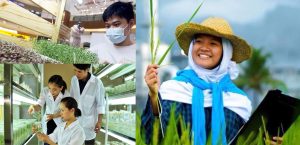Compte-rendu officiel des Concertations pour le Sommet des Nations Unies sur les systèmes alimentaires 2021
Type de Concertation
Coordonnateur
Langue de l'événement de Concertation
Date/heure
À:
Ville
Cible géographique
Format
Veuillez consulter les détails ci-dessous pour obtenir des renseignements sur l’inscription, s’ils sont disponibles, ou communiquer avec le coordonnateur si vous souhaitez y assister.
Animateur
Description
In support of the Summit, the Southeast Asian Regional Center for Graduate Study and Research in Agriculture (SEARCA) is convening an Independent Dialogue on 18 May 2021 to discuss the transformations needed in education and research for higher education institutions in the region to achieve the desired goals.
SEARCA is one of the 27 specialist centers under the Southeast Asian Ministers of Education Organization (SEAMEO). Contributing to this UN Food Systems Summit, which provides an opportunity to unleash ambitious new actions, innovative solutions, and plans to transform our food systems and leverage these shifts to deliver progress across the SDGs, is also a step towards realizing SEARCA’s current Five-Year Plan focusing on Accelerating Transformation Through Agricultural Innovation (ATTAIN).
Titled Breaking Silos: Transforming Agricultural Education and Research toward Sustainable Food Systems in Southeast Asia, this Dialogue intends to bring together participants from the youth sector, farmer federations, those in agro-industry, in government and in the academe to share evidences, experiences or new ideas, and plan to take action and to foster partnerships for implementing the identified action.
Specifically, the Dialogue seeks to respond to the following questions:
- What new knowledge/research/policies in higher education are needed in the next decade to transform food systems?
- What innovative pedagogies, methodologies, approaches, and ways would be more effective to disseminate knowledge/research results to a wider audience and to ensure transformations?
- What governance strategies and policies, as well as strategic alliances, are needed to ensure a more holistic approach to science and research and higher education on food systems?


